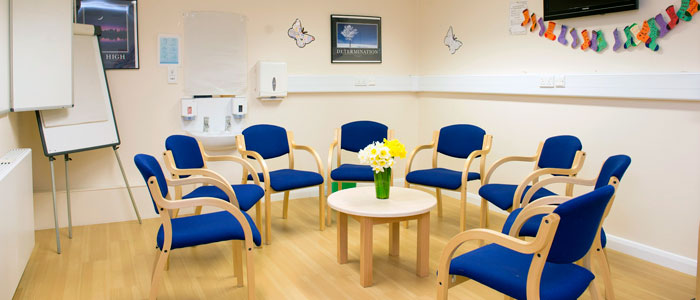The Group Programme

Cotswold House runs a number of therapeutic groups throughout the week, which are attended by both inpatients and day patients. A member of the team will assess you individually to establish your suitability to attend groups at each stage of your treatment.
Group therapy allows patients to share experiences and information, which others may be able to relate to and identify with. Individuals often find that they get a great deal of support from meeting and talking with people who are going through similar experiences as themselves.
Groups can also be helpful in establishing and developing interpersonal skills. The more you are able to involve yourself and participate in groups, the more you are likely to get out of them. In this respect, it is important to apply the knowledge and skills learned in groups to outside situations to ensure they are developed and maintained.
The group programme is regularly reviewed and updated. Some examples of our groups can be found below:
Page last reviewed: 21 August, 2017
